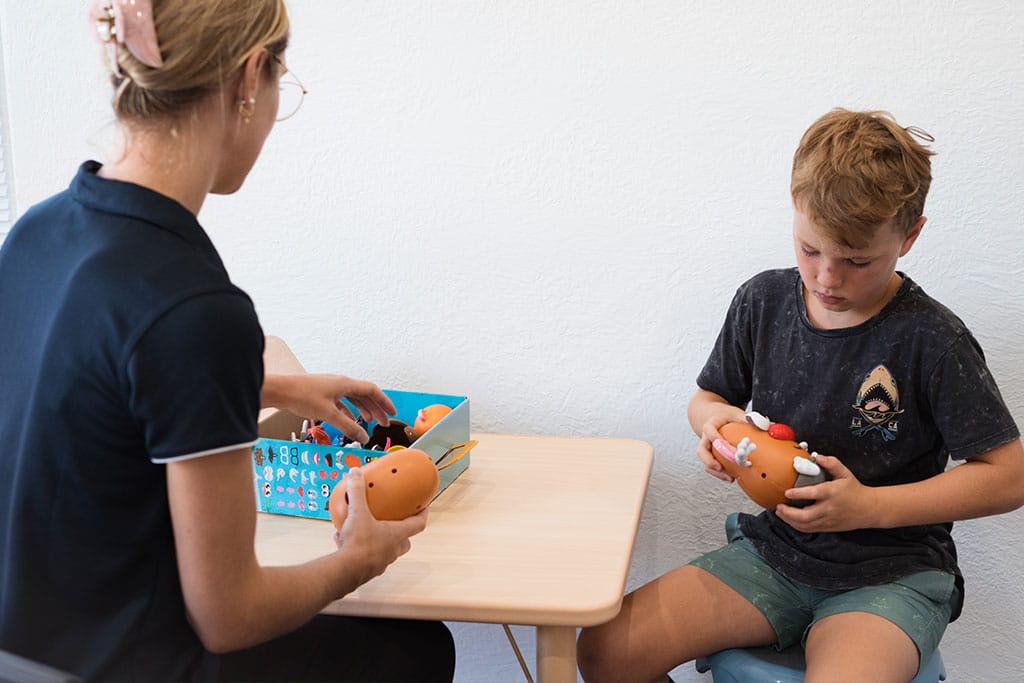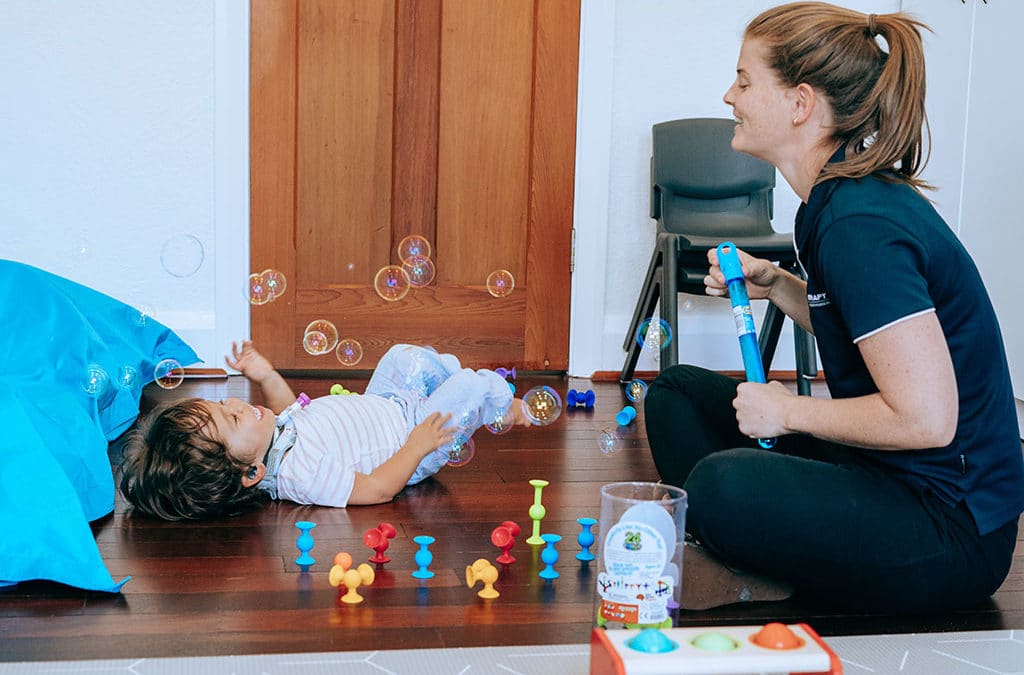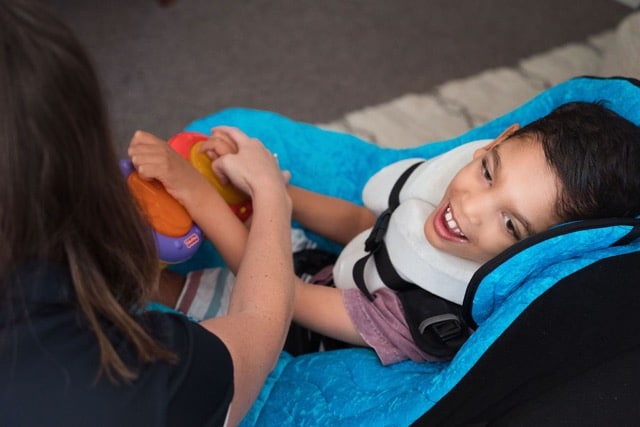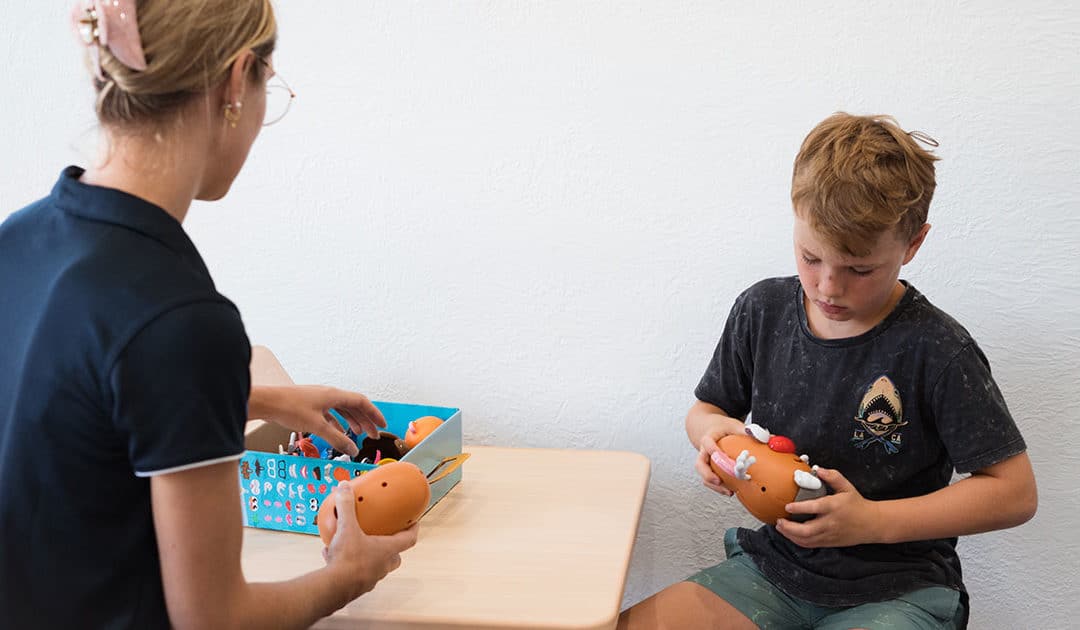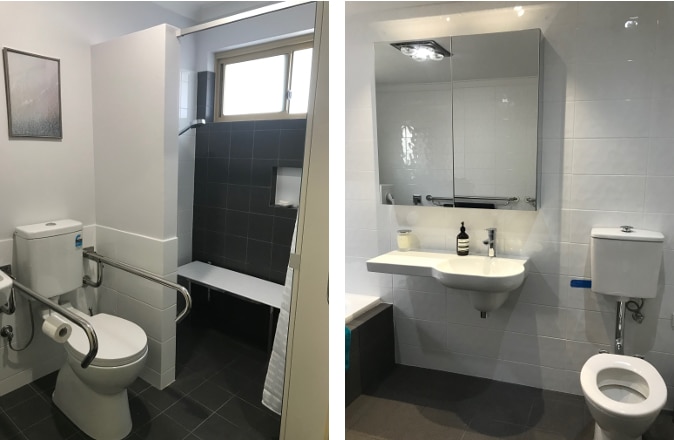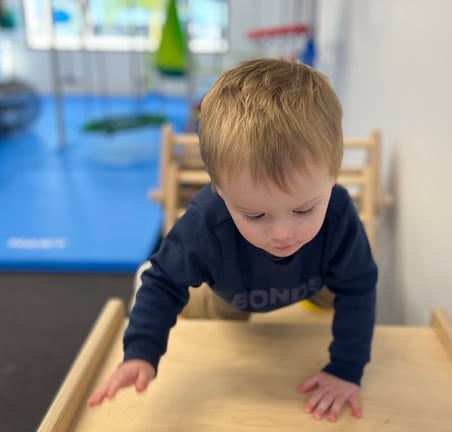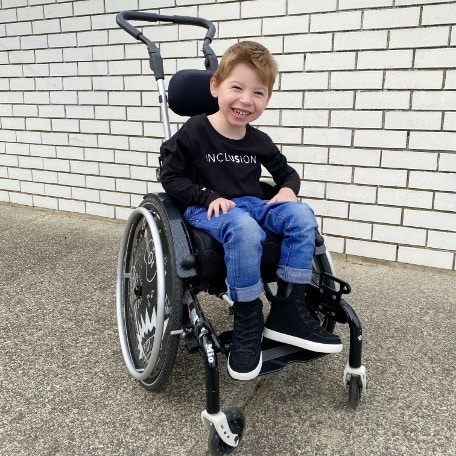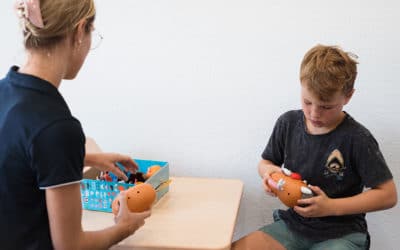Exploring the benefits of occupational therapy for autism
If there’s one thing that parents of children living with Autism Spectrum Disorder (ASD) understand, it’s the additional support that can be required with challenging tasks. Thankfully, occupational therapy for autism has been showing incredible promise when it comes to improving a child’s functionality and quality of life.
It is important to explore how occupational therapy interventions are beneficial for children diagnosed with ASD – particularly those struggling with activities in their everyday lives like personal tasks, school work, or playtime activities.
Through using evidence-based approaches tailored to each child’s needs, working with an occupational therapist for autism has helped many families experience renewed hope and happiness as they watch their kids progress in meaningful ways.
About Autism
Autism Spectrum Disorder (ASD) is a developmental disorder that affects communication, social skills and interactions, and behaviour. Autistic children often have difficulty with daily living skills, such as dressing, eating, going to the toilet, and other tasks.
No two people on the autism spectrum are the same, just like no two people without it will experience life in the same way.
Some of the common characteristics of ASD may include difficulty communicating, sensory needs and issues, different ways of learning, repetitive behaviours, or difficulty understanding social situations.
However, those on the autism spectrum can be incredibly creative and alert in specialised areas. With an early diagnosis and access to appropriate support services, they can lead happy and productive lives, excelling in the fields they’re most passionate about.
How an occupational therapist for autism helps
So where does occupational therapy come into it? Occupational Therapy (OT) intervention can play an essential role in helping young people with autism develop functionality through different stages.
Working with allied health professionals, such as Occupational Therapists and Speech Pathologists, people with autism can improve their everyday skills at home, school, and in the community by improving emotional regulation, communication and interactions with other people.
Personalised support for you and your children
A qualified occupational therapist will strive to create personalised therapy goals and plan that builds foundational skills to support independent participation in meaningful activities at home, in a school setting, and in the community.
In partnership with family members, teachers and other care providers, occupational therapy services in autism identify opportunities within a child’s environment for meaningful and successful engagement in their day-to-day life.
These approaches may include strategies and techniques that could be potentially used by those experiencing sensory, behavioural and emotional regulation challenges.
Improving the quality of life with daily living skills
Ultimately, Occupational Therapy intervention is about optimising engagement in meaningful activities. OTs want to help achieve the quality of life benchmarks consistent with the child and family’s unique needs and values.
This could include; getting dressed independently, self care activities, school based skills such has handwriting and communicating. This can also include activities at home and in the community such as preparing a meal, catching public transport and participating in sport.
Combat sensory overload
Occupational Therapists for autism use a variety of techniques to address the unique needs of children with ASD. One of the most important aspects of OT intervention for children with ASD is working on building their sensory processing skills. Children with ASD often have difficulty processing sensory information, which can lead to behaviours such as avoiding certain textures or becoming overwhelmed in noisy environments.
Occupational therapists work with a variety of techniques, such as sensory integration therapy, to help children with ASD learn to process sensory information more effectively.
How OT services help develop skills & independent function
Occupational Therapists for autism help children develop their fine motor skills in meaningful ways.
Sometimes, children with ASD often have difficulty with tasks such as buttoning, zipping, using utensils and other daily tasks. OTs use work disguised as play to make these difficult skills more exciting, gradually improving both the accuracy and speed of movement.
OTs are knowledgeable and passionate about helping your child grow. From grasping toys to using tweezers and even manipulating play dough, OTs create techniques to foster success and growth. Everyday activities such as tying shoelaces, writing with a pencil or beading a necklace are broken down into manageable chunks so children beginning the motor learning process won’t become overwhelmed.
How an occupational therapist for autism helps motor skills
Occupational therapy sessions also focus on helping children with ASD develop their motor skills. Children with ASD may have difficulty with balance, postural control and coordination, which can make it difficult for them to participate in activities such as climbing, running, and jumping.
OTs use activities such as trampoline jumping and obstacle courses to help children with ASD build their gross motor skills.
Socialising & communication
Another important aspect of OT intervention for children with ASD is to help them develop their social and communication skills.
Children with ASD often have difficulty with social interactions and may have difficulty understanding and expressing their own emotions and the emotions of others. OTs use techniques such as social stories and role-playing to help children with ASD learn how to interact with others.
Self-care & emotional regulation
Children with ASD may have difficulty with everyday tasks and emotional regulation – OTs will also help them develop their self-care skills and emotional understanding through tailored activities to suit the child’s needs.
To sum it all up: OT is incredibly beneficial!
Occupational therapy intervention boasts plenty of benefits for children with ASD. The goal of OT intervention is to help children with ASD develop the skills they need to function independently and participate in activities that are meaningful to them.
OTs use a variety of techniques such as sensory integration therapy, fine motor skills building, gross motor skills building, social and communication skills building, and self-care skills building to achieve this goal.
It’s important for the occupational therapist to work closely with the child’s family and other professionals to create a holistic and individualised treatment plan. All in all, it’s a fantastic way to help your child grow and thrive in the world.
Looking for support?
Evolve Therapy Services provides paediatric occupational therapy services across Perth and from our sensory gym and clinic in Shenton Park. Explore our services and get in touch with us today!
